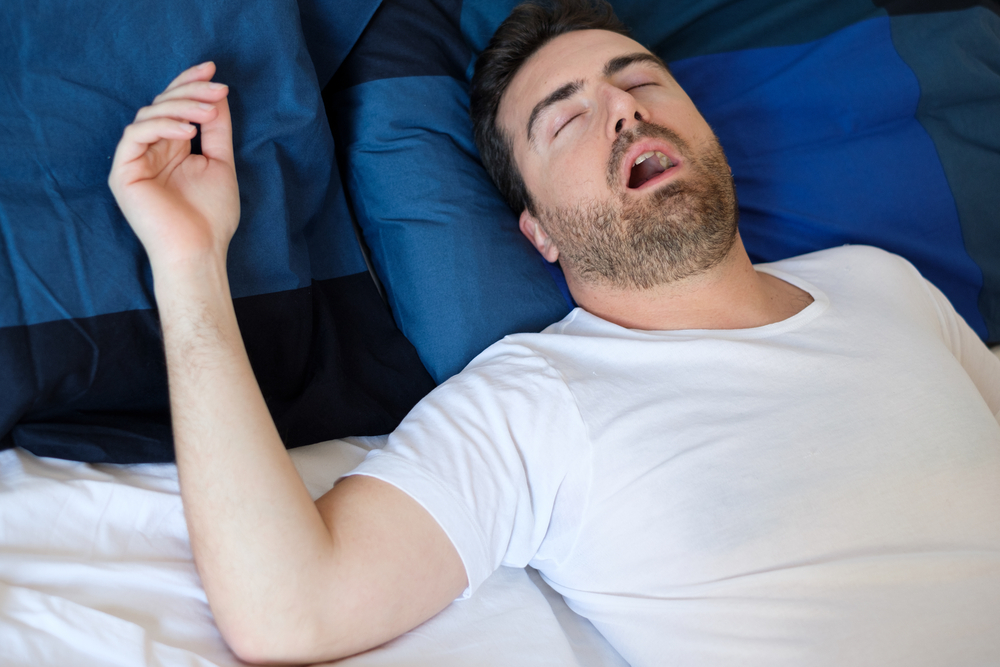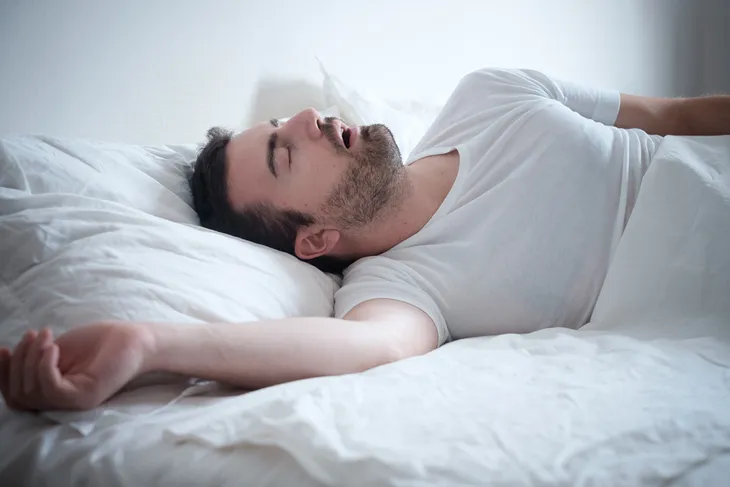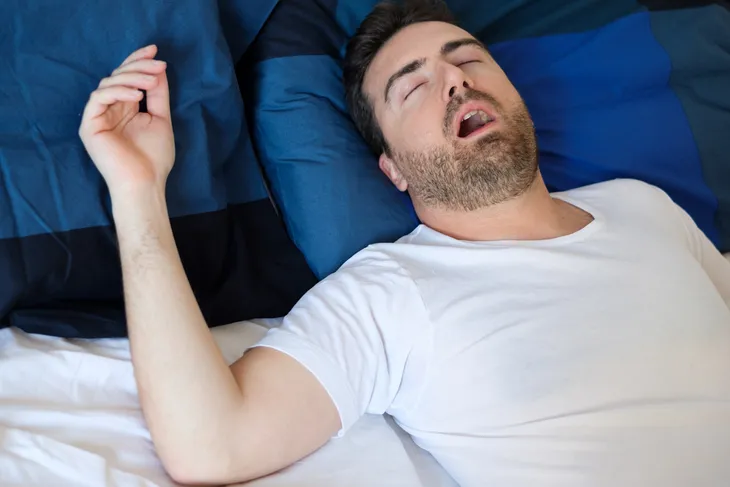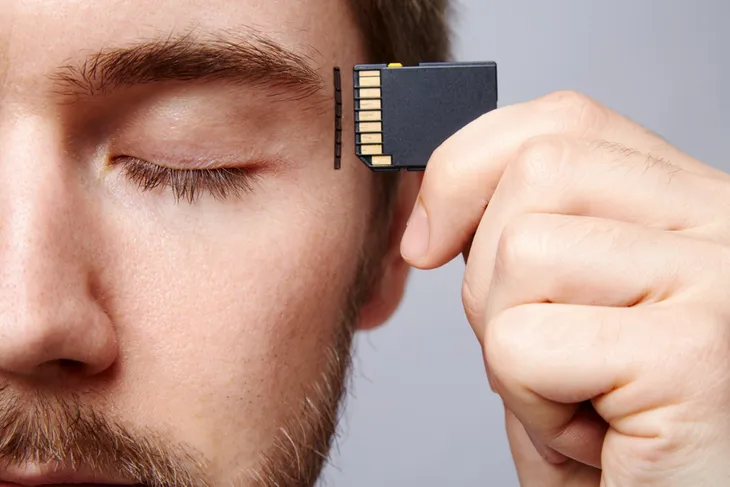A potentially serious disorder, sleep apnea occurs when a person’s breathing is repeatedly interrupted throughout the night. Of the three types of sleep apnea, obstructive is the most common, occurring when the throat muscles relax and block the airway. Central sleep apnea, on the other hand, is a result of the brain failing to signal the muscles that control breathing, and complex sleep apnea syndrome is when someone suffers from both of the above mentioned types.
As sleep is essential to the body’s day-to-day functioning, insufficient or interrupted rest for prolonged periods of time can cause more serious conditions. Obstructive sleep apnea, for instance, can lead to high blood pressure, stroke and heart disease. For such reasons, it’s important to be aware of the symptoms associated with sleep apnea in order to obtain a diagnosis and begin treatment as soon as possible.
Loud Snoring
One of the most common symptoms of sleep apnea, particularly the obstructive type, is loud snoring. Although such snoring is chronic, it may not happen every night. Over time, however, the National Institutes of Health (NIH) say it can become louder and more frequent.
It’s important to note that, while snoring is quite common, it is not always indicative of sleep apnea. In order to receive a proper diagnosis, be sure to book an appointment with a doctor.
Pauses in Breathing During Sleep
Sleep apnea is defined as “a reduction or cessation of breathing during sleep,” so experiencing either of these things are strong indicators of the disorder. Since the affected person is asleep, someone with whom they share a home or bed usually witnesses these symptoms.
For those with central sleep apnea specifically, these breathing interruptions may cause them to wake suddenly and experience a choking or gasping sensation as they try to catch their breath.
Restless Sleep
According to HelpGuide.org, those with sleep apnea are often unaware of the pauses in breathing they experience (sometimes hundreds of times throughout the night), which jolt the body out of its natural sleep rhythm.
In some cases, however, they may cause the person to awaken. Perhaps not every time an interruption occurs, but often enough that it leads to a restless night of sleep, insomnia or frequent trips to the bathroom.
Sore Throat Upon Awakening
Due to deep and frequent snoring, it’s not uncommon for those with sleep apnea—particularly obstructive—to regularly awaken with a sore throat. Sleeping with the mouth open while snoring may also cause it to feel very dry first thing in the morning.
Waking up with headaches is another sign of sleep apnea, and is one of the most commonly reported symptoms by those who aren’t yet aware they suffer from the disorder. According to the Alaska Sleep Clinic, frequent pauses in breathing leads to insufficient oxygen in the brain, which widens the blood vessels and causes headaches.
Daytime Sleepiness
Constantly interrupted rest will often cause those suffering from sleep apnea to battle with excessive sleepiness during the daytime hours, regardless of how much time they spend in bed each night.
Feeling sluggish, low on energy, or nodding off periodically throughout the day are common. Over time, however, such behaviors may have serious repercussions—such as disciplinary action at work, job loss, or an accident while operating a motor vehicle or heavy machinery.
Cognitive Impairment
Consistently receiving an insufficient amount of oxygen and rest may cause the brain of someone with sleep apnea to become impaired, leading to forgetfulness, memory loss or trouble maintaining concentration on work or personal tasks.
The person can also experience irritability and mood disturbances such as depression and anxiety that are uncharacteristic of their usual self. In some cases, the affected individual may even display personality changes.









